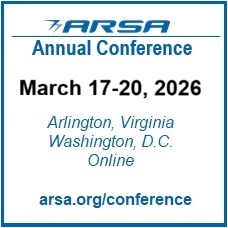Reminder: Clock is Ticking to Cut Your Company’s 2011 Tax Bill
As 2011 draws to a close, companies are running out of time to take advantage of a temporary capital investment incentive. If your company purchases equipment this year, you can dramatically reduce your 2011 tax bill.
The Tax Relief, Unemployment Insurance Reauthorization and Job Creation Act of 2010 (TRJA) extended and expanded the depreciation bonus created in 2008. For 2011, it’s an unprecedented 100 percent; for 2012, it’s 50 percent. By lowering your taxable income, bonus depreciation can significantly cut your 2011 and 2012 federal tax bills, freeing up cash in the near term.
Assume you buy and place in service in 2011 a new piece of equipment costing $100,000. Using bonus depreciation, you can “write off” the full amount this year, reducing your taxable income by $100,000. If you’re in the 35 percent tax bracket, that can reduce your 2011 tax bill by $35,000.
NSSGA is supporting lobbying efforts to extend 100 percent depreciation for one more year. If that doesn’t happen, in 2012 things get a little more complicated: the depreciation bonus will fall to 50 percent. You’ll be able to write off half the purchase cost plus the percentage of the remaining basis you’d ordinarily write off in the first year. For a $100,000 machine with a five-year MACRS life you’ll be able to write off $60,000 ($50,000 with bonus depreciation plus one-fifth of the remaining $50,000 in basis).
There are some important nuances to keep in mind:
First, to qualify for bonus depreciation, the equipment must be new. That means the “first use” must occur with the taxpayer who claims the benefit. Used equipment that doesn’t qualify for bonus depreciation might still qualify for Sec. 179 expensing (see below).
The equipment has to be placed in service in the year in which you claim the bonus (2011 for 100 percent and 2012 for 50 percent). In other words, if what you’re buying takes a long time to deliver, don’t wait until December to place your order.
Next, the property must fit into one of the categories for which bonus depreciation is allowed: property depreciable under the Modified Accelerated Cost Recovery System (MACRS) with a recovery period of 20 years or less (most tangible property used in a business will fall into this category), as well as select water utility property, computer software, and leasehold improvements.
Bonus depreciation is elective, not mandatory. You don’t have to use it if you don’t want to. And it applies for both regular and alternative minimum tax purposes.
But there are some potential downsides. The more you depreciate now, the less you’ll be able to depreciate later. In other words, your tax bill in future years may be higher because you’ll have less to deduct. Also, if you depreciate 100 percent now and sell the asset before the end of the asset’s MACRS recovery period, it may increase your tax bill in the year you sell. (Like-kind exchange (LKE) can help mitigate some of that potential depreciation bonus “hangover”.) And some states don’t recognize the depreciation bonus, which may result in additional tax complexity.
But when considering the downsides, consider this: Would you rather take the tax break now and invest the money in your company, or would you rather let the U.S. government hold onto it for you for the next several years?
From a tax standpoint, there’s never been a better time to invest in your company’s future. Of course, this article doesn’t constitute specific tax or legal advice, so be sure to check with your accountant or tax professional if you want to take advantage of the law. But don’t wait … the clock is ticking! More info is at http://www.depreciationbonus.org.
~~~ posted 12/20/11 ~~~







